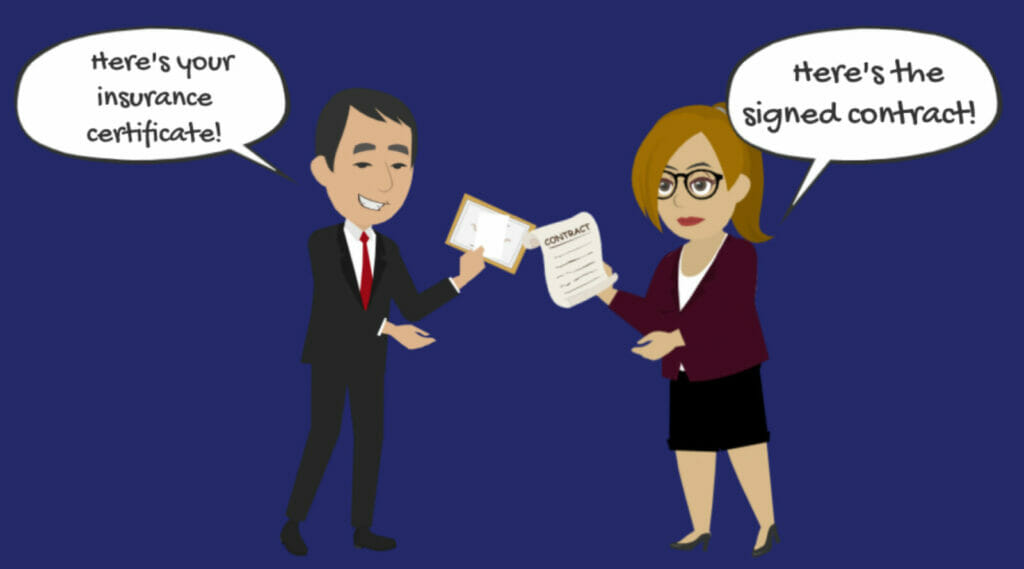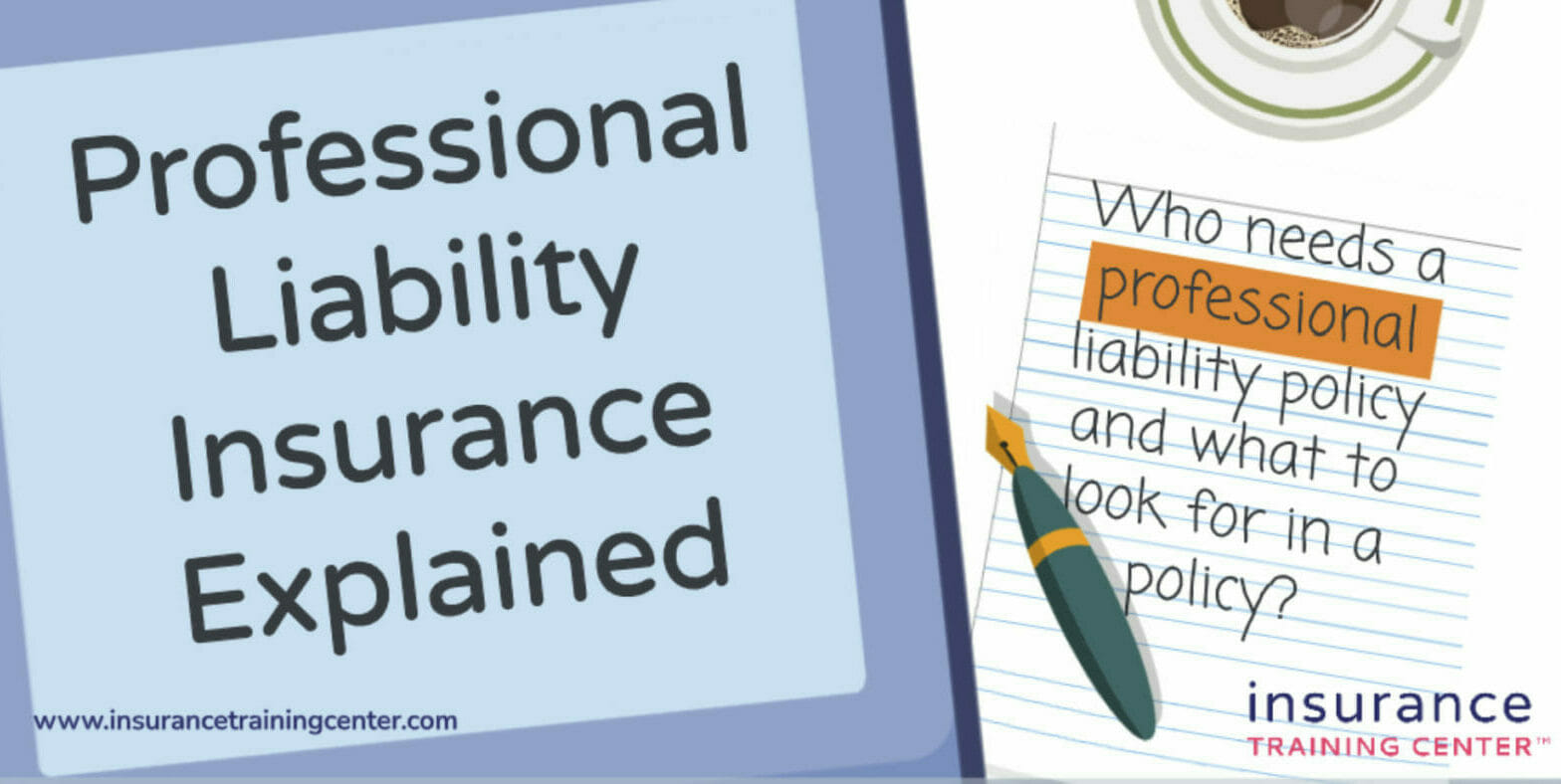Professional liability insurance protects businesses and individuals against claims of negligence, errors, or omissions in the services they provide.
In today’s business environment, even the most skilled professionals can face lawsuits. One missed detail, a misunderstood recommendation, or a simple oversight can lead to costly legal claims—even if you did nothing wrong.
This is where professional liability insurance becomes essential. It helps cover legal defense costs, settlements, and judgments tied to the services you provide. Without it, your personal or business assets could be at serious risk.
Understanding what professional liability insurance covers—and what it doesn’t—is key. The sections below explain exactly what professional liability insurance is, who needs professional liability insurance, and how to choose coverage that fits your industry and risk profile.
What is professional liability insurance?
Professional liability insurance is a type of liability insurance specifically for individuals and organizations that provide professional services. This insurance policy protects professionals when they are subject to claims that they made a mistake while providing their professional service; a mistake that resulted in a financial loss to others. Its purpose is to protect the insured professional from suffering financial loss as a result of such third-party claims.
Professional liability insurance is also known as Professional Indemnity Insurance (PI) or Errors & Omissions Insurance (E&O).
Professionals need to clearly understand what’s expected of them and to whom they are liable. Insurance is a risk management tool designed to cover the professional’s financial exposure by providing funds to help deal with such situations. For the insurance to work, professionals need to know what to buy and how the policy works.
Who needs professional liability insurance?
Professional liability insurance policies provide important coverage for a wide range of professions. Historically, this insurance was bought by those in traditional professions such as accountants, lawyers, or advisors. Today, the definition of professional has expanded to include many other occupations such as general contractor, photographer, travel agent, property managers, and more.
Just as there are many different kinds of professions, the insurance industry has also developed different types of professional liability insurance policies to address the unique characteristics and risks associated with the various professions. The list varies somewhat among insurers.
Common types of professional liability insurance policies include:
- Design-build insurance – i.e. for architects, engineers, etc.
- Medical malpractice insurance – for doctors, dentists, etc.
- Technology errors & omissions insurance – for technology service providers such as website designers.
- Other tailored policies – for lawyers, accountants, insurance brokers, real estate brokers, etc. (lawyers professional liability insurance, accountants professional liability…)
- Miscellaneous professional liability insurance – for those professionals for whom the insurance industry does not have a tailored policy. For example, photographers, travel agents, human resources consultants, etc.
What is professional liability?
Professional liability refers to the legal obligation that the professional has to a third party to:
- perform as contracted
- meet the standard of care required of someone in their profession
- provide the professional service in the best interest of the client.
Do I need professional liability insurance?
You will need to have professional liability insurance if you answer “yes” to any of the following questions:
-
Are you a professional?
Does your vocation require advanced education and training? Even if you’re not a member of a traditional profession, you may still be considered a professional so it’s important that you check with your insurance broker.
Professionals hold legal liability for what they do in the delivery of their professional services. Regardless of qualifications and best intentions, things can go wrong resulting in financial losses to others. In fact, even when things go well, allegations may still arise. A client, for example, may sue for breach of contract, negligence or breach of fiduciary duty. And even allegations cost money to defend. -
Does your profession require that you hold professional liability insurance coverage?
Generally, those in regulated professions such as medical doctors, lawyers and mortgage brokers are required by law to be licensed and in order to get a license they need to have PI insurance. The requirement may come from a regulator or from a professional association and there may specific liability coverage minimums.
-
Do any of your clients require that you provide proof of professional liability insurance coverage?
Professionals and professional services organizations are increasingly being required by their clients to provide proof of professional liability insurance coverage. This gives clients assurance that there is a financial backstop should something go wrong requiring compensation. Proof of Commercial General Liability (“CGL”) coverage will not meet this requirement because a CGL insurance policy does not cover financial loss to third parties arising from professional negligence.

What does professional liability insurance cover?
Professional liability insurance covers financial loss. It only applies if the alleged mistake occurred during the course of providing the professional service. And, it only applies if that professional service is the service for which the insurance policy was purchased.
Financial loss
Liability insurance is a category of insurances that cover loss experienced by the insured party as a result of its legal obligation to a third party. There are many types of liability insurance, each designed for a different purpose. These various types of insurance are carefully constructed to avoid coverage overlap between different insurances. Commercial general liability insurance only addresses bodily injury and property damage and expressly excludes financial loss from coverage. Professional liability insurance only addresses financial loss. There may be situations in which both policies are triggered.
From the performance of
Professional Liability insurance is intended to protect the insured professional from suffering financial loss as a result of third-party claims alleging negligent performance of professional services. Therefore, when faced with a claim of negligent performance, it is necessary to determine whether or not the professional was actually engaged in providing professional services. If the answer is no, then no professional liability insurance cover would be triggered for costs related to that claim.
Covered professional service
When there is a claim, the first of the coverage criteria will be, did this claim arise from a covered professional service. If the description that you provide when you purchase your professional liability insurance does not include the professional service for which you are filing a claim, then that claim could not be considered for coverage.
A claims example:
An architect makes a design error. By the time the error is discovered, the building project is well under way. The cost of rectifying the structure to bring it up to code has reached $85,000. The building owner sues the architect for professional negligence. The damage to the third party, the building owner, is the additional cost incurred to rectify the construction. It is financial damage.
Let’s take a closer look. Professional liability claims arise when:
-
- a professional fails, or allegedly fails, to fulfill their legal obligation,
- a third party suffers a financial loss (as a result of professional negligence), and
- the third party sues to recoup those costs.
The professional liability policy then responds by covering the loss. The loss is the amount that the insured professional is legally required to pay as a result of the actual or alleged wrongful acts. Loss could include defence costs, judgments, settlements, damages, or fines. as defined by the insurance policy.
What to look for in a PLI policy
Claims reporting basis
A PLI policy may be available on an occurrence or a claims made basis. If the policy is written on an occurrence basis, that means that claims will only be considered for coverage if the event that gave rise to a claim, a.k.a., the occurrence, happened during the policy period. These policies are said to have ‘long-tail liability’ because the claims can be reported at any time, even long after the policy period has ended.
If the policy is written on a claims made basis, the insurance will only cover claims that are made during the policy period. Here, the event that gave rise to the claim may have occurred during or before the policy period. With this type of policy, if the policy is not renewed, or expired, the professional is out of coverage.
Policy length
Professional liability insurance policies are typically 12 months in duration.
Some insurers offer a multi-year purchase of an annual policy. With a multi-year purchase, the insurance buyer locks in the premium price for up to three years and the insured limit resets annually on the policy anniversary date.
Project-specific policies are also available that last the duration of the project that is being insured. This type of policy is often bought for large, high-liability projects. With this type of policy, there is a single liability limit for the entire policy period, even if it spans several years.
Key takeaways:
- There are many different types of professional liability insurance policies, specific to different professions
- You may be required to purchase professional liability insurance
- Professional liability insurance addresses financial loss
- Before buying PLI, know your options and how they work
- When buying PLI, take care to accurately describe your professional service.

